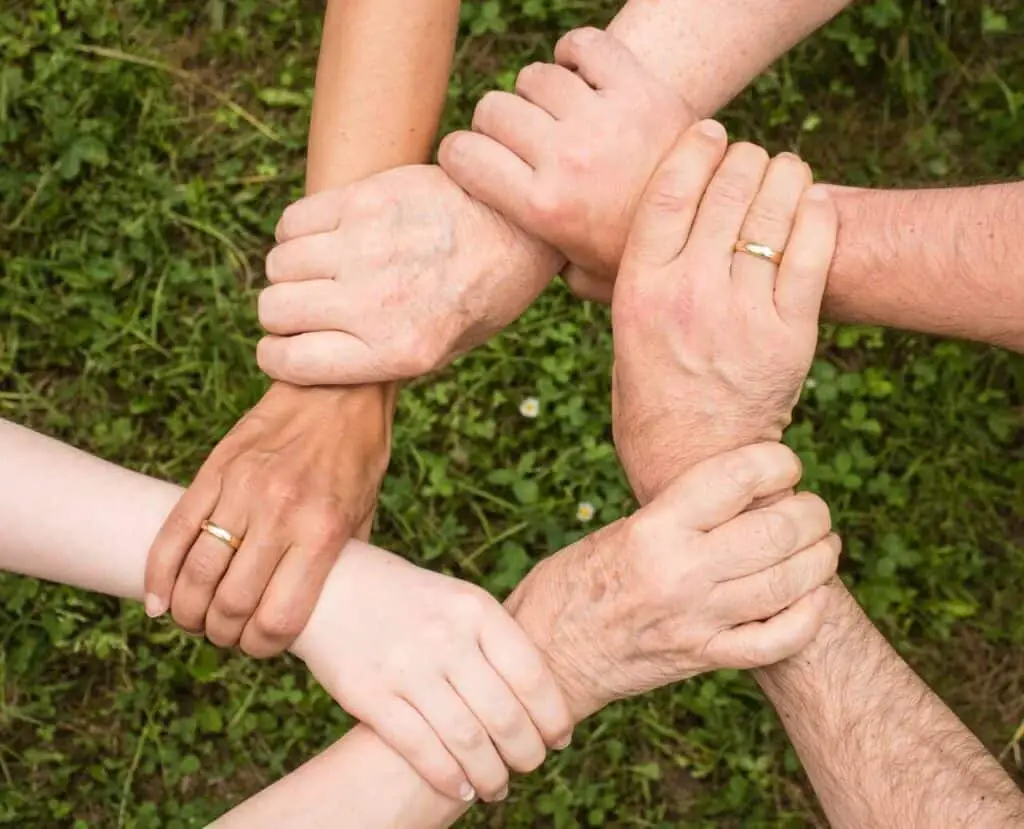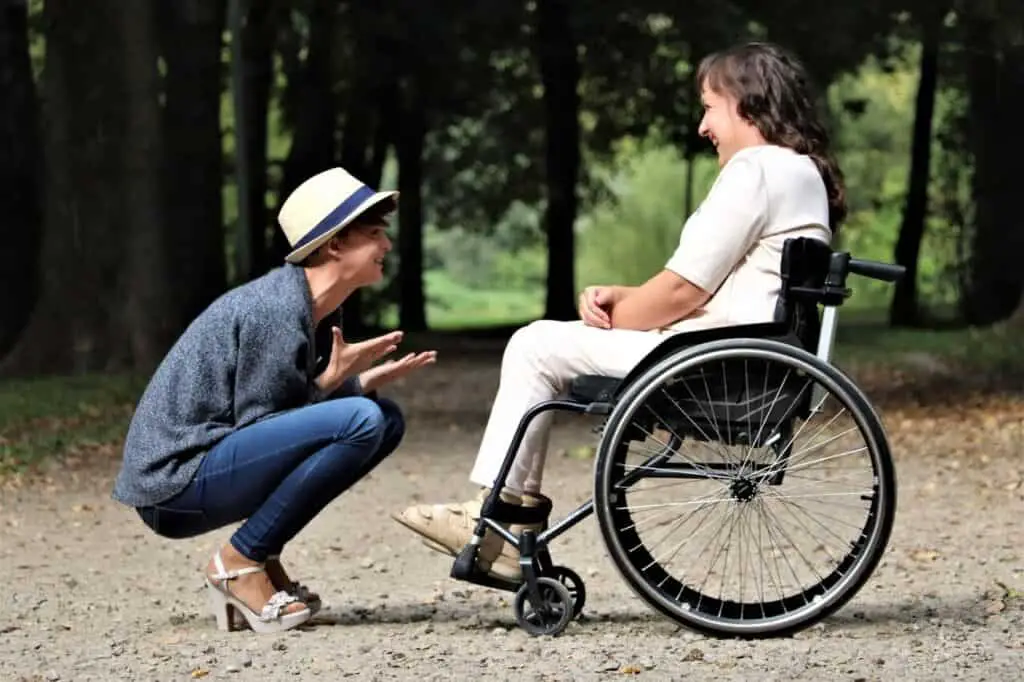
I was in a coaching session the other day with a person who wants to improve his social wellbeing as per our earlier assessment to his overall wellbeing.
One question came up, which is, what are the factors that can affect social wellbeing? What helps and what not?
There are 9 factors that can affect your social wellbeing which are, education, personal learning, personality, disabilities and diseases, people, environment, social status, parenting style, and crises. The benefit of knowing them is that you can turn them to your advantage if they’re hindering your improvement to your social wellbeing.
Below is a handy table to understand these factors better, how much of an impact they can have, and how much of control you have over them, then the net strength of each for you to prioritize on what to work on and focus on.
| Factor | Impact | Level of control |
|---|---|---|
| Education | 4 | 0 |
| Personal learning | 5 | 5 |
| Personality | 2 | 4 |
| Disabilities and Diseases | 3 | 2 |
| People | 4 | 3 |
| Environment | 3 | 2 |
| Social status | 3 | 2 |
| Parenting style | 5 | 1 |
| Crises | 5 | 0 |
1- Education

Good educational experiences about social wellbeing and it’s tools support confidence, and mastery. It’s a major contributor to your high levels of social wellbeing. That’s why education is a big factor when it comes to social wellbeing improvement.
This can include learning about how to communicate with others effectively, how to speak, how to listen, how to negotiate, how to parent, how to present, etc.
I am personally sure that not all of the social wellbeing tools are being taught as part of any school’s curriculum. Some are though, like how to write, or how to speak.
But for tools like how to listen, or how to present, or how to negotiate, in school it’s going to be from either a teacher or school activities.
It can be a teacher taking the extra mile in teaching you these skills on specific and relevant occasions like teaching you how to listen to others when working on a problem between you and a friend
Or teaching you couple of speaking/presenting tips in your reading classes to improve those skills. If you have this teacher, he’s a keeper. Keep learning from him.
The other way in school would be to join school activities which can harness your social wellbeing tools like learning how to present from joining the acting activity for your school or learning how to negotiate by joining the debate group.
It’s going to be more convenient in college if these topics are part of your curriculum, like learning how to negotiate for sellers for example or how to speak for teachers and lecturers, etc.
The problem in college is going to be if you saw it from the perspective of “a must know to pass”. Then it’s going to be about memorizing and vomiting that information on the final exam, without focusing on the applying part which is the key in mastering those skills as we discussed in the ladder of mastery
2- Personal learning

Personal learning is probably one of the major factors affecting your social wellbeing development because unlike with education, here you have total control over what you can learn, when, where, and how.
In the education point, we’ve discussed that it’s not always certain that it’ll teach you all social wellbeing tools. It’s a matter of probabilities of having a super teacher, or a good school that offers diverse and multiple extracurricular activities to join or specializing in a relevant degree in college.
If you don’t fall in the above probabilities, then you’re all alone.
This is where personal learning comes in play, and this is why it’s so important. Because now you have no excuse for not having a super teacher or school activities or not majoring in a social degree.
Now you can overcome those by learning from so many online teachers, watching videos of experts about the topic, listening to podcasts about the subject by known figures.
This is where you can choose to join groups in your community or take courses about any of the social wellbeing tools, like presentation, speaking, negotiation, parenting.
This is where you can even apply for a degree in one of these tools and add to your Life CV*.
*life CV is a generalized CV I use and coach about that includes everything you learn and accomplish in life. It’s different from your professional CV where you only include job related knowledge and learning to avoid confusing the interviewer.
3- Personality

Your personality is one the factors affecting your social wellbeing development based on your mindset, and trait.
Mindset
By mindset I mean, which mindsets are you operating with? Is it the blamer or fixed mindset? Or is it the explorer or growth mindset?
If you’re operating with the blamer or the fixed mindset as Carol Dweck calls it, then you’ll see your skills as fixed and can’t be changed. You’ll blame nature for making you this way and this will limit your abilities to enhance your speaking or presentation skills. For you it’s going to be “it’s what it’s”
With the explorer or the growth mindset, you see upgrades and improvements as inevitable. You’ll always explore new territories and potentials which will result in improved tools like speaking or presenting for example.
Trait
By trait, I refer to your personality type for example. Like where are you on the introvert/extrovert spectrum? Are you close to the introvert end or the extrovert one?
This factor, to a minimal extent, can affect your social wellbeing status. If you’re an extrovert person, then it’s easier for you to socialize for example and connect.
Like I said, this factor of trait has minimal effect as it doesn’t have an effect on many other social wellbeing tools like parenting or negotiating for example. Being an extrovert doesn’t necessarily add to that.
4- Disabilities and Diseases

Disabilities is another factor affecting your work on improving social wellbeing with regard to competence, and confidence.
Being a person with disability may affect your view to yourself as complete or normal which may impact your ability to socialize for example, and you may become isolated.
Of course, this shouldn’t be the case at all, and it is not the case for so many persons with disabilities and we’ve seen that and will continue to see it in achievements done by them.
If you are a person with disability, as defined by medical institutes, you are still a complete and competent person, as defined by life.
Mental illness and substance abuse may have a negative impact on the social wellbeing of individuals.
5- People

Other people have influence and impact on your social wellbeing as they are the other part of the equation.
As we stated in the social wellbeing definition, it’s about connecting with other. So there has to be another person at least for it to work.
This puts another factor that could affect your social wellbeing improvement which is the type of persons around you that you’re dealing with.
- Do you have a friendly colleague or an abusive one?
- Do you have a good neighbor or a complainer?
- Do you have a supporting boss or a harsh one?
- Do you have a tough audience or an easy one?
All of the above, are examples of what can influence your social wellbeing when it comes to the other person you’re dealing with and as you can see, the range of your influence on them varies according to the example, but it’s there that’s for sure.
You can have more leverage on improving your communication to beat the tough audience, but you may not be able to have a similar success with the harsh manager.
6- Environment

A stimulating, safe, caring, and supportive environment supports social wellbeing and positive outcomes. An environment that supports good communication and parenting leads to a better social wellbeing for that community.
Environment is a key player you see often when it comes to almost anything affecting you like IQ, mental status, diseases, finance, etc.
- Do you live in a friendly neighborhood or an unfriendly or hostile one?
- Do you work in a supporting environment or a harassing one?
- Does your community or culture support learning or mastering all or some of the social wellbeing tools?
7- Social status

Social status also plays a role in determining your social wellbeing level in terms of type of skills, and resources.
The social skills you learn in one social status is different from the skills you learn in another higher social status. High social class talk and speak differently as part of their etiquette learning.
Another point is capability to learn those skills. With higher social class, resources are more available than lower social class. Money, time, personnel won’t be an issue there.
8- Parenting style

A supportive, caring, and effective parenting provides the foundations for positive social wellbeing development and sets good role models to imitate.
How you were or are being raised is going to shape your social wellbeing to a large degree.
- What kind of parents do you have? Authoritative or authoritarian?
- Were you raised to speak up or to Shshsh?
- Were you raised to negotiate or not?
- Did your parents teach you how to listen to others or not?
- Were you taught to solve your problem effectively or just hit the other kid back?
- Were you raised upon the fixed mindset or the growth one?
Parenting is one of the toughest jobs as per my opinion because the outcome is another person with certain beliefs and tools as a result to the parenting style used.
9- Crises

Crises deprive the perfect environment for social wellbeing to thrive because it takes away its needed elements of people and ability to socialize
Examples of this point are war times, or pandemics like the Covid-19 pandemic we’re living in right now in 2021 (added the date just in case you’re reading this in the future when it’s over :D)
During covid, schools and kindergartens were closed for long time, and there were lock downs in several countries for long times as well, so there was no place for preschoolers to interact with each other.